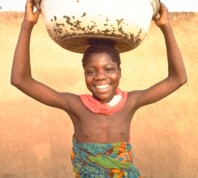Mada in Cameroon

Photo Source:
COMIBAM / Sepal
|
Send Joshua Project a map of this people group.
|
| People Name: | Mada |
| Country: | Cameroon |
| 10/40 Window: | No |
| Population: | 56,000 |
| World Population: | 56,000 |
| Primary Language: | Mada (Cameroon) |
| Primary Religion: | Islam |
| Christian Adherents: | 7.00 % |
| Evangelicals: | 0.70 % |
| Scripture: | Portions |
| Ministry Resources: | No |
| Jesus Film: | No |
| Audio Recordings: | Yes |
| People Cluster: | Chadic |
| Affinity Bloc: | Sub-Saharan Peoples |
| Progress Level: |
|
Introduction / History
The Mada are located in western Cameroon near the border of Nigeria. Their language, also called Mada, belongs to the Chadic language family. The land they inhabit is mountainous and tropical. The temperature is hot throughout the year, and there is about 60 inches of rain annually. Rain forests and wooded savannas surround the Mada.
Cameroon, bordered by six nations, has had a large influx of peoples and cultures. Many small ethnic groups living in Cameroon have, at some point, come from or traveled to at least one of the neighboring countries. The Mada have maintained their traditional culture, even though the society around them is constantly changing.
What Are Their Lives Like?
The Mada live in a rural region and are primarily farmers, rotating their crops in terraced fields. Guinea corn is their staple food, and they also grow yams, beans, okra, pumpkins, peppers and cotton. Most families raise goats, sheep, and chickens as well as dogs.
Within the Mada tribe, the men are responsible for planting the crops and reaping the harvest. However, much of the farm work is done by the women. For instance, they also work alongside the men to clear the land for cultivation. They also tend to the animals and the small vegetable gardens.
The Mada live in a patriarchal, or male-dominated, society. Inheritances go first to the man's eldest son, then to the man's younger brother.
Their society is also patrilocal, which means that newlywed couples live among the groom's family. A Mada marriage ceremony usually involves the payment of a bride price. The prospective groom will pay the girl's family with money, wine or animals. If he cannot pay, he will perform a bride service. This means that he will agree to do agricultural work for the girl's family. Also, two families may exchange girls for their sons to marry. In such cases, there is no need for a bride price. Polygyny (having multiple wives) is a common practice among the Mada. The first wife, who is considered to be the "chief" wife, has authority over the other wives.
Mada settlements are usually located on the summits of hills. A village is made up of several compounds. Each compound consists of several huts belonging to extended family members. The huts are round with mud walls, and each is built like a circle within a circle. The sleeping quarters are located between the two circles. The center circle contains the granary to store the crops. Each extended family compound is surrounded by a stone wall.
A headman lives in the center of the village and oversees the entire community by judging all disputes. A council of elders assists him in the decision-making.
What Are Their Beliefs?
Most Mada are Malikite Muslims, adhering to Islamic beliefs and traditions, which include praying five times a day, fasting during prescribed periods and giving alms to the poor. Theirs is a religion of works based on the belief in one god, Allah, and in the teachings of his prophet, Mohammed. Few of the Mada profess to be Christians. In addition to Islam, the Mada maintain beliefs in the spirit world. They need to put their trust in Jesus Christ.
What Are Their Needs?
Efforts to evangelize the Mada have resulted in only a small percent of their population becoming Christian. Discipleship materials and tools such as Christian radio broadcasts are needed to effectively spread the gospel message among this tribe.
Prayer Points
Pray for the Mada people to have the spiritual hunger it takes to embrace Christ no matter what the cost.
Pray for Mada leaders to embrace the only savior and open their communities to Christ.
Ask the Lord to call people who are willing to devote their lives to seeing the Mada people discipled in Christ's ways.
Ask the Lord to raise up Mada churches that will plant more churches.